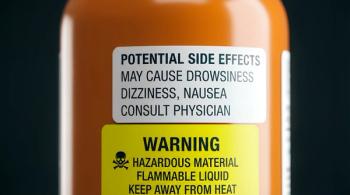
FDA Approves Enzalutamide for the Treatment of Metastatic Castration-Sensitive Prostate Cancer
With this approval, enzalutamide is the first and only oral treatment approved by the FDA in 3 distinct types of advanced prostate cancer.
The FDA has approved a supplemental new drug application (sNDA) for enzalutamide (Xtandi, Pfizer Inc) for the treatment of patients with metastatic castration-sensitive prostate cancer (mCSPC).
In 2019, it is estimated that just over 40,000 in the United States are living with mCSPC, a form of prostate cancer that has spread to other parts of the body and still responds to a medical or surgical treatment that lowers testosterone.
With this approval, enzalutamide is the first and only oral treatment approved by the FDA in 3 distinct types of advanced prostate cancer: non-metastatic and metastatic castration-resistant prostate cancer (CRPC), and mCSPC.
The approval is based on results from ARCHES, a randomized phase 3 study that evaluated 1150 patients with mCSPC and met its primary endpoint of radiographic progression-free survival.
“Men with metastatic castration-sensitive prostate cancer face complex treatment decisions and it is critical for physicians and patients to have as much information as possible when deciding on all of the options available,” said Andrew Armstrong, MD, professor of Medicine, Surgery, Pharmacology and Cancer Biology, director of Research in the Duke Cancer Institute’s Center for Prostate and Urologic Cancers and lead investigator of ARCHES. “The research supporting the FDA approval and updated treatment guidelines provide physicians and patients with compelling evidence to consider enzalutamide as a treatment option for men with this disease.”
Researchers from the ARCHES trial found that the use of enzalutamide plus androgen deprivation therapy (ADT) significantly reduced the risk of radiographic progression or death by 61% compared with placebo plus ADT.
The safety analysis of the ARCHES trial is generally consistent with the safety profile of enzalutamide in previous clinical trials in CRPC. Common adverse events that were reported more frequently in patients treated with enzalutamide plus ADT versus placebo plus ADT included hot flash, asthenic conditions, hypertension, fractures, and musculoskeletal pain.
“[Enzalutamide] has been established as a standard of care for men with castration-resistant prostate cancer and has been prescribed to more than 420,000 patients worldwide since it was first approved in 2012,” said Andrew Krivoshik, MD, PhD, senior vice president and Oncology Therapeutic Area Head at Astellas. “This approval in metastatic castration-sensitive prostate cancer means physicians can now offer [enzalutamide] to men earlier in their advanced prostate cancer treatment journey.”
Reference
- XTANDI® (enzalutamide) Approved by U.S. FDA for the Treatment of Metastatic Castration-Sensitive Prostate Cancer [press release]. Published December 16, 2019. https://www.pharmacytimes.com/publications/issue/2019/December2019/improve-medication-adherence-in-patients-with-hiv. Accessed December 17, 2019.
Newsletter
Stay informed on drug updates, treatment guidelines, and pharmacy practice trends—subscribe to Pharmacy Times for weekly clinical insights.

































